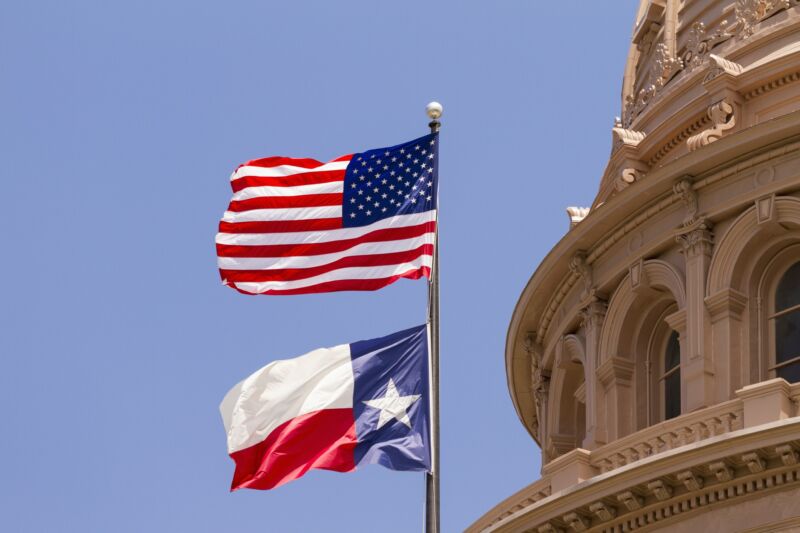
Getty Images | PA Thompson
The U.S. Supreme Court on Tuesday blocked Texas law that prohibits social media companies from moderating content based on a user’s “point of view.” The Supreme Court order came about three weeks after the so-called “censorship law” was reinstated by the U.S. Court of Appeals for the Fifth Circuit.
“The application for eviction for residence has been submitted to the Ministry of Justice [Samuel] Alito and referred by him to the Court,” the ruling read. “The May 11, 2022 order of the United States Court of Appeals for the Fifth Circuit suspending the district court’s preliminary injunction is hereby lifted.”
It was a 5-4 decision with Judges Amy Comey Barrett, Stephen Breyer, Sonia Sotomayor, Brett Kavanaugh and Chief Justice John Roberts voting to block the Texas law. Alito wrote a dissent that was joined by Judges Clarence Thomas and Neil Gorsuch. The ruling separately says that “Justice” [Elena] Kagan would deny the application to vacate the residence,” but Kagan did not join Alito’s dissent.
The Supreme Court ruling came in response to an emergency request from technology groups NetChoice and the Computer & Communications & Industry Association (CCIA). With the preliminary injunction reinstated, the lawsuits will continue and Texas will not be able to enforce the law unless it wins the case.
Tech group applauds Supreme Court ruling
“This ruling means US private companies will have an opportunity to be heard in court before being forced to distribute despicable, abusive or extremist content under this Texas law. We appreciate the Supreme Court’s protection of the First Amendment guarantees, including the right not to be forced to speak, will be upheld during the legal challenge of Texas’s social media law,” said CCIA president Matt Schruers.
“No online platform, website or newspaper should be instructed by government officials to make certain statements. This has been a key tenet of our democracy for over 200 years and the Supreme Court has confirmed it,” Schruers also said.
Texas law defines it as “an act of censorship of or certain other interference with digital expression, including expression on social media platforms or via electronic mail.” The law says that a “social media platform must not censor a user” based on the user’s “point of view” and defines “censorship” as “block, ban, delete, deplatform, demonetize, de-boost, restrict, deny equal access or visibility to, or otherwise discriminate against speech.” The Texas Attorney General or users can sue social media platforms that violate this ban and obtain injunctive relief and court costs, the law says.
Not only is the Texas law unconstitutional, it “would have been a disaster for social media users and for public discourse,” said John Bergmayer, legal director of consumer organization Public Knowledge. “It would have ordered social media platforms to host and distribute horrific and distasteful content, and to turn a blind eye to hatred, abuse and coordinated disinformation campaigns. The main outcome of this policy would not be to strengthen freedom of expression, but to talk people out of it by driving them away from poisonous platforms.”

